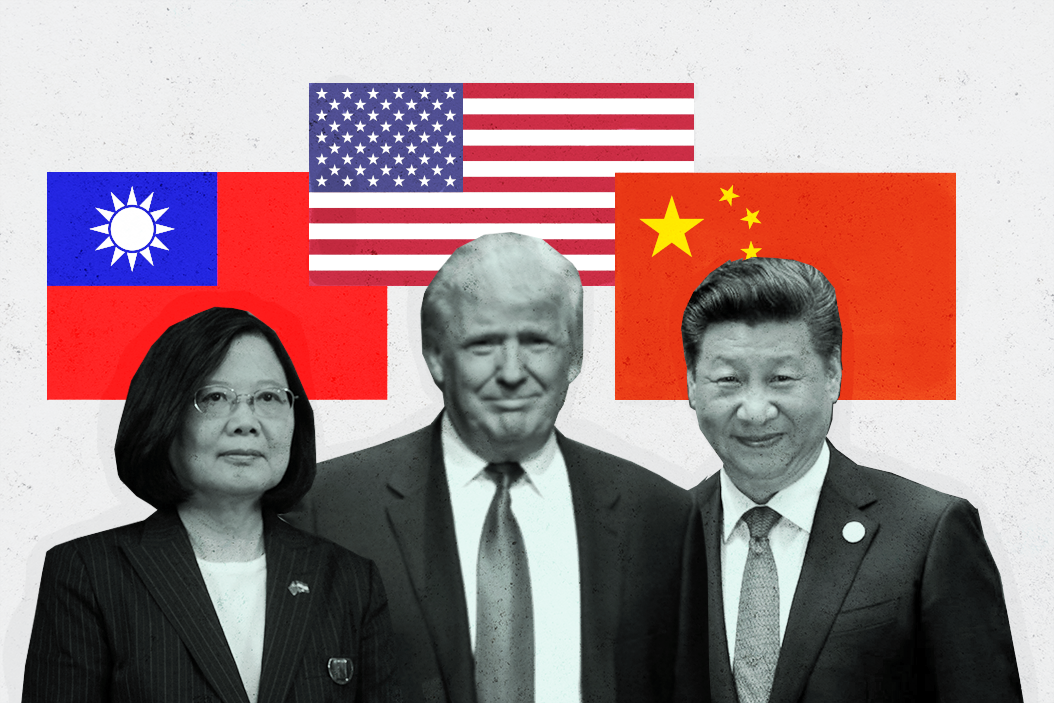Embracing Taiwan and provoking China: Over the weekend, the Trump administration eased long-standing restrictions on US diplomatic relations with Taiwan. In essence, just as President Trump is preparing to exit the White House, Secretary of State Mike Pompeo has lobbed a diplomatic Molotov cocktail toward Beijing and doubled down on the outgoing president's challenge to US orthodoxy on cross-Strait relations. In 1979, the US cut ties with Taiwan to open a new era in relations with China. Though Washington has continued to support Taiwan's security against possible Chinese attack, including by selling Taipei sophisticated weapons, Pompeo's directive goes much further in establishing new US-Taiwan ties — diplomatic and military — than any US administration in four decades. Although this isn't a complete break with the "One China Policy" and the US-Taiwan relationship remains "unofficial," we're watching now to see how the Chinese government will respond. It has good reason to wait to see what the incoming US president will say and do. That leaves Joe Biden with interesting problems, and Beijing wondering whether a future Republican president will push even harder on this hottest of hot-button issues.
US blacklists Houthis in Yemen: Washington now considers the Iran-backed Houthi rebels of Yemen to be a terrorist group, based largely on their history of cross-border attacks on Saudi infrastructure. The designation makes it illegal, under US law, for banks or companies to do business with the Houthis. The trouble is that in practice the Houthis now control most of Yemen, after overthrowing the previous government and fighting a six-year ongoing conflict against a coalition led by Saudi Arabia. As a result, humanitarian groups are worried that blacklisting the Houthis will make it harder for them to bring food and aid into the country, where a staggering 80 percent of the population depends on external assistance. It's also unclear whether this move will help or hinder extremely tenuous UN-led peace talks that are aiming to end Yemen's devastating civil war.
From prisoner to president: Sadyr Zhaparov, an outspoken populist who spent three years in jail for kidnapping of a regional governor, is the new president of Kyrgyzstan after winning Sunday's election in a landslide. The vote was a rerun of the October presidential election, which resulted in mass street protests that led to the resignation of then-President Sooronbai Jeenbekov, whom the opposition accused of rigging the vote. Amid the post-election unrest Zhaparov became prime minister after his supporters broke him out from prison. Zhaparov's victory is expected to bring long-overdue stability to the mineral-rich country, but some fear that he may use a June constitutional referendum to turn Kyrgyzstan into a more authoritarian state like most of its Central Asian neighbors. Outside players are also watching closely: Russia is delighted that the new leader of this former Soviet republic favors close ties with Moscow, while China worries that Zhaparov may dusts off his old plans to nationalize Chinese-owned gold mines.More For You
Eurasia Group’s Iran expert Greg Brew speaks to GZERO about whether the US will hit Iran again, and what that could look like if they do.
Most Popular
Think you know what's going on around the world? Here's your chance to prove it.
The US government will reportedly fund MAGA-aligned parties and think tanks in Europe. But with US President Donald Trump’s favorability in Europe so low, do they even want the money?
Zelensky agrees: elections matter #PUPPETREGIME
